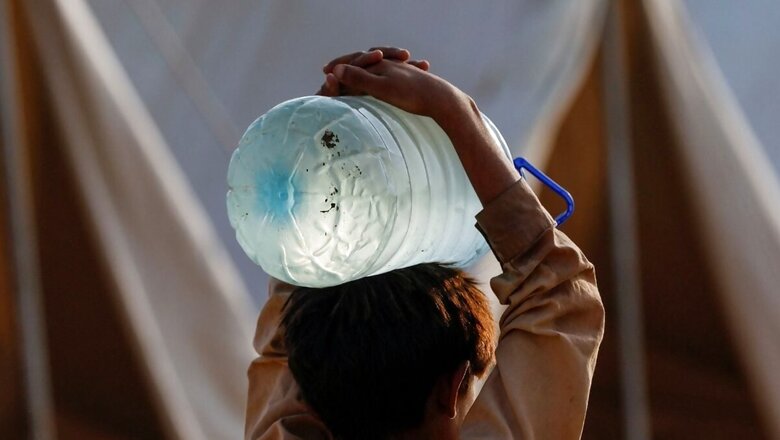
views
Rich countries must act quicker and commit to achieving net zero neutrality as close as possible by 2040, said the United Nations Intergovernmental Panel on Climate Change (IPCC) in its latest report.
The synthesis report written by the world’s leading climate scientists brings together all available knowledge on climate change since the IPCC’s inception in 1980. It is also the final IPCC report in the current assessment cycle to be published before the countries hit the 2030 milestone of climate action.
“The rich nations are endowed with technology and finance. They are in better shape to achieve climate neutrality much earlier than other regions that do not have the resources. There is sufficient capital available but the question is why it is not being allocated to solve urgent problems of climate issue. Certainly, the financial sector is making different calculations,” said IPCC chair Hoesung Lee.
Two of the biggest emitters of greenhouse gases – China and the US have set a net zero target of 2060 and 2050. The report underscored the urgency of taking more ambitious action, reiterating that developed nations have the responsibility to help other regions lacking in resources so the world can have a sustainable future.
‘Inadequate’ climate finance
The world’s most authoritative body on climate change once again flagged wide gaps in financial flows required for urgent action. Scientists said there was plenty of finance available but it was not being directed towards climate action.
“The financial system needs to respond. Our assessment shows that investment and mitigation needs to rise by at least three to six times. This can be done in two ways. The governments have to give clear signals that climate change is imminent. And, the financial systems – the banks have to recognise the urgency of climate risks,” said co-author Dipak Dasgupta, distinguished fellow at The Energy and Resources Institute (TERI).
The report also brought climate justice to the fore, highlighting how 10 percent of households with the highest emissions per person contribute 34 to 45 percent of all household emissions, while the bottom 50 percent contribute just 13 to 15 percent.
“Climate justice is crucial because those who have contributed least to climate change are being disproportionately affected,” said Aditi Mukherji, a scientist who was one of the 93 authors. “In the last decade, deaths from floods, droughts and storms were 15 times higher in highly vulnerable regions.”
Warning of adaptation limits
Scientists also warned policy-makers against people’s limits to adaptation, and said most adaptation measures feasible now will become much less so as warming intensifies.
“The report clearly shows that at higher temperatures, the effectiveness of adaptation will go down drastically. So, unless mitigation also happens at the pace required, many of the adaptation measures we are investing in now will not remain as effective,” Mukherji said.
As warming levels increase, the risk of species extinction or irreversible loss of biodiversity in ecosystems, including forests, coral reefs and in Arctic regions, will go up.
India welcomes IPCC findings
India, which has committed to achieving carbon neutrality by 2070, welcomed the report highlighting that it endorsed the country’s call for equity and climate justice.
Environment minister Bhupendra Yadav said the report confirmed climate change as one of the key environmental challenges facing humanity.
“It reaffirms the role of unequal historical and ongoing contributions to GHG (greenhouse gas) emissions. Scientists confirmed that financial support from developed to developing countries is a critical enabler of climate action, highlighting that current flows are inadequate. This includes the promised-but-never-received $100 billion,” Yadav said.
The report concludes the biggest update of the state of knowledge on climate science and the end of the IPCC AR6 cycle. It will inform the 2023 Global Stocktake under the United Nations Framework Convention on Climate Change (UNFCCC).
Read all the Latest India News here


















Comments
0 comment